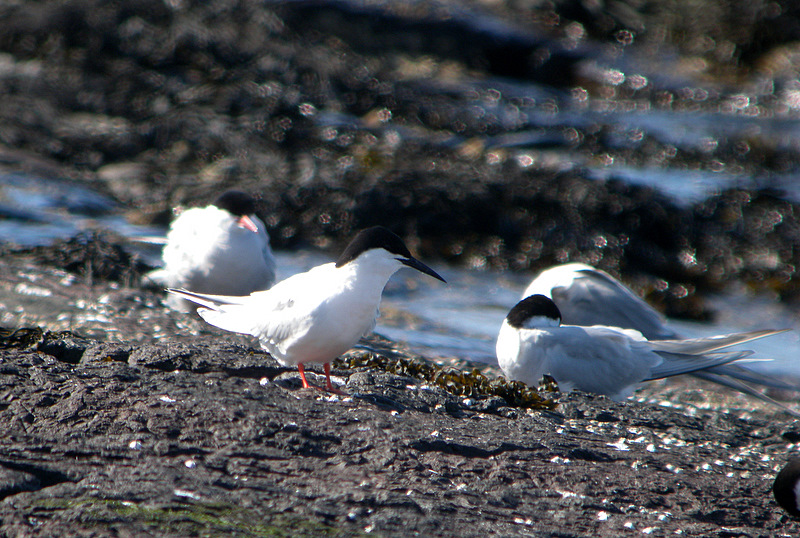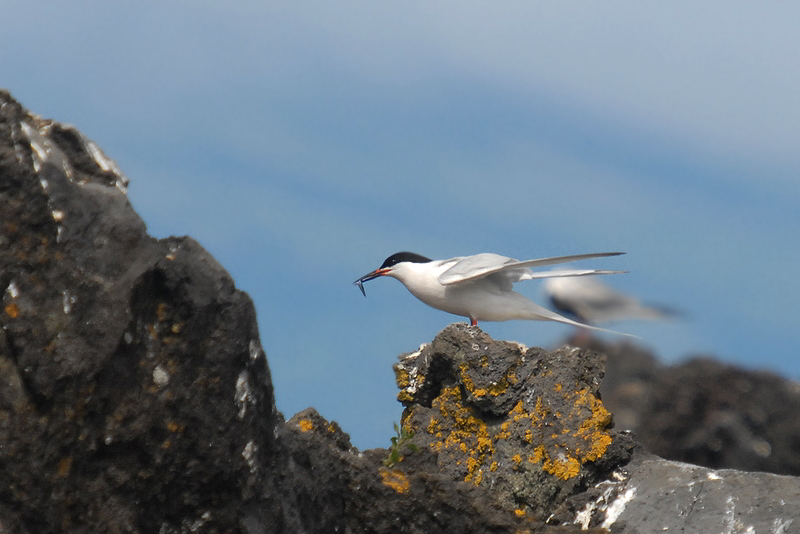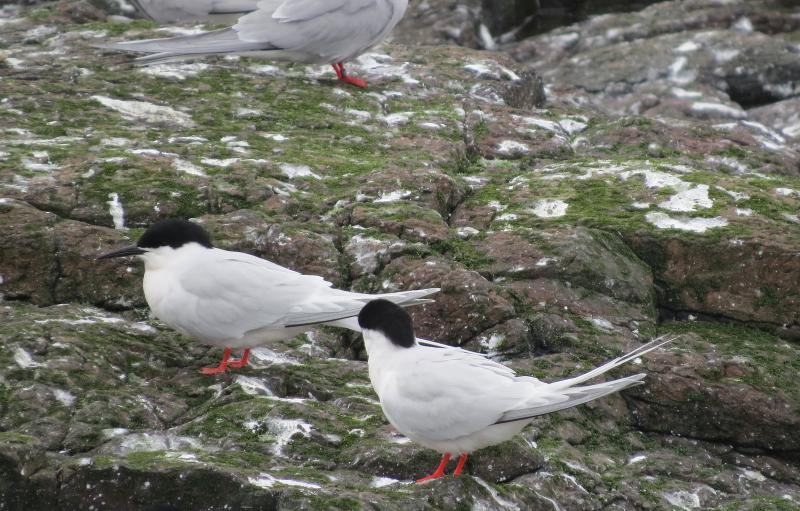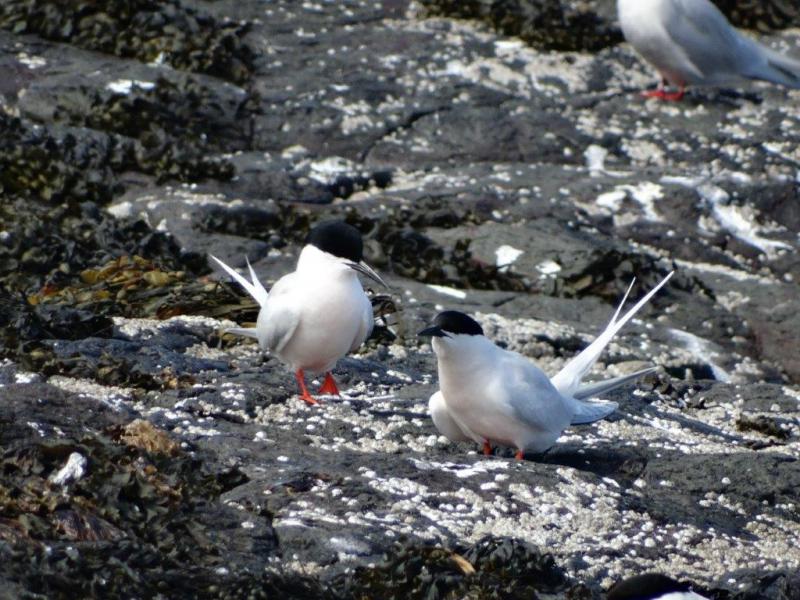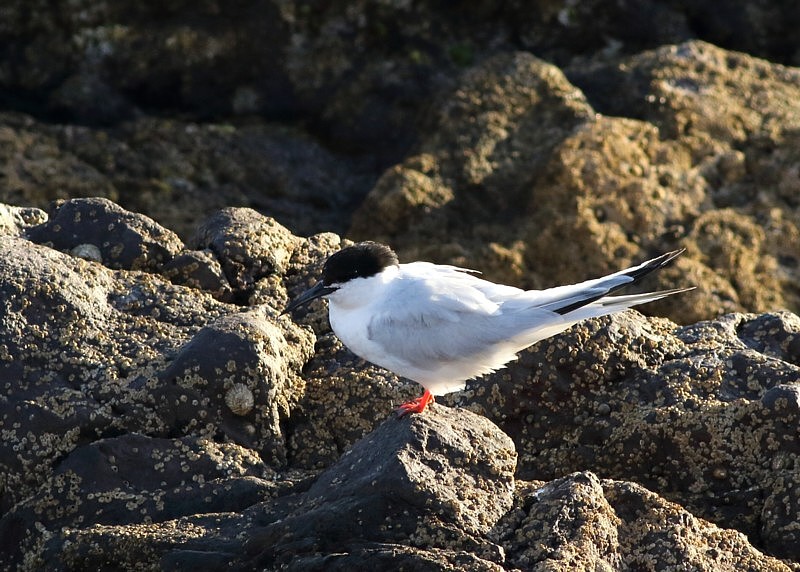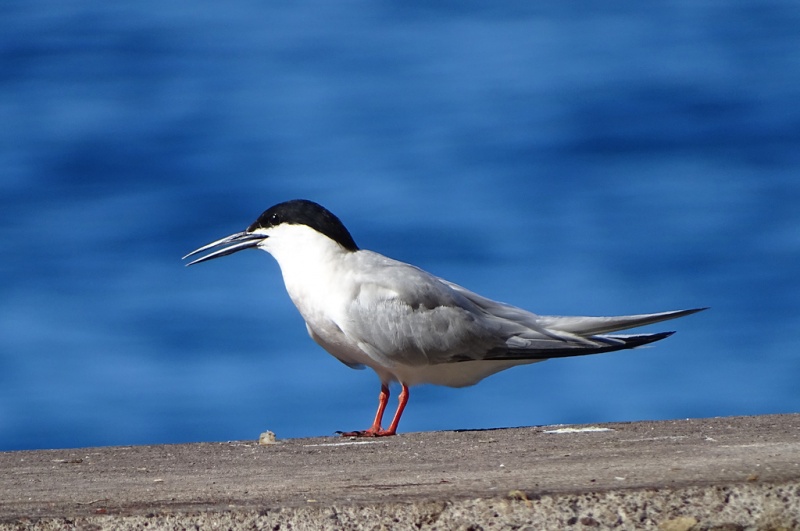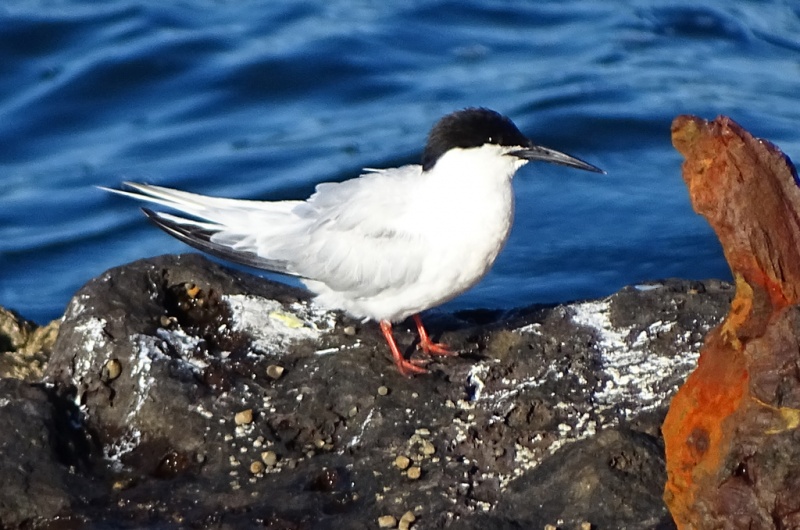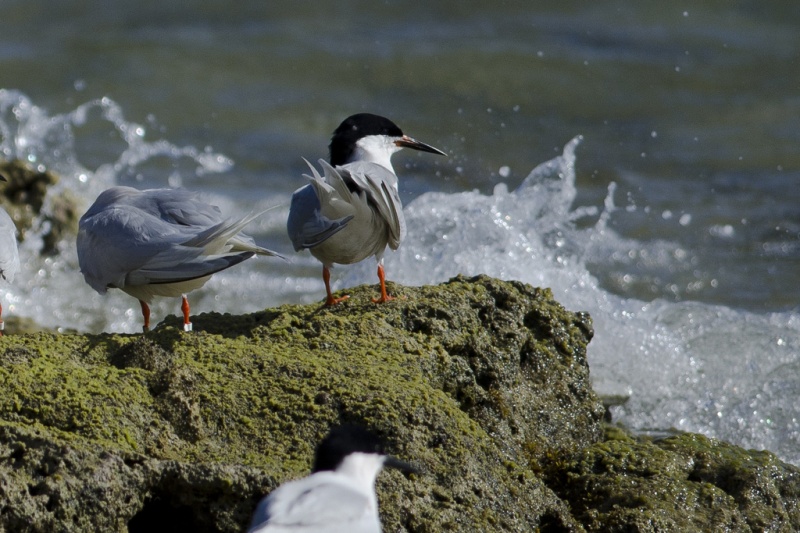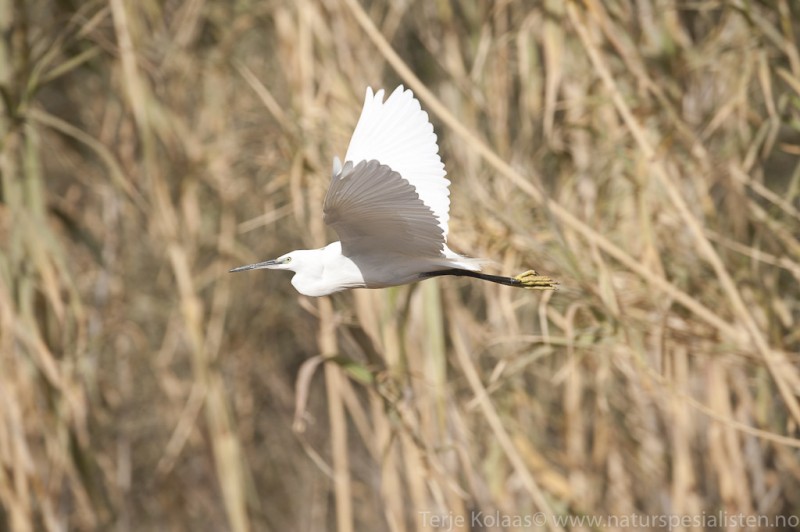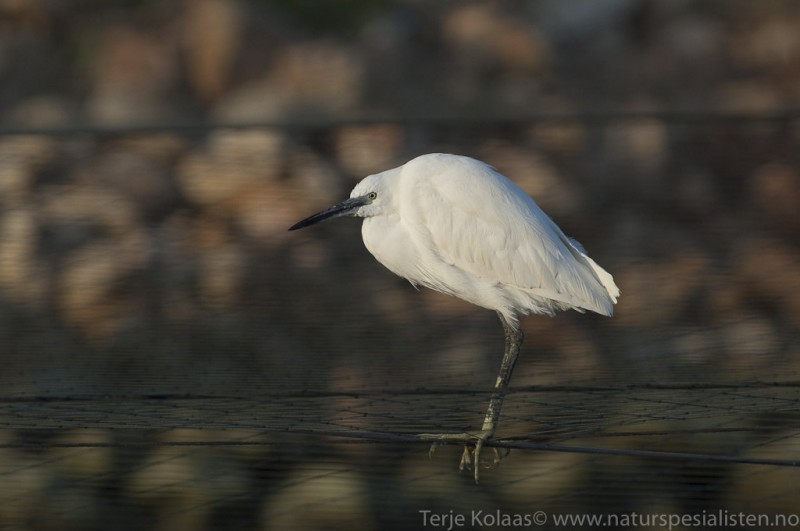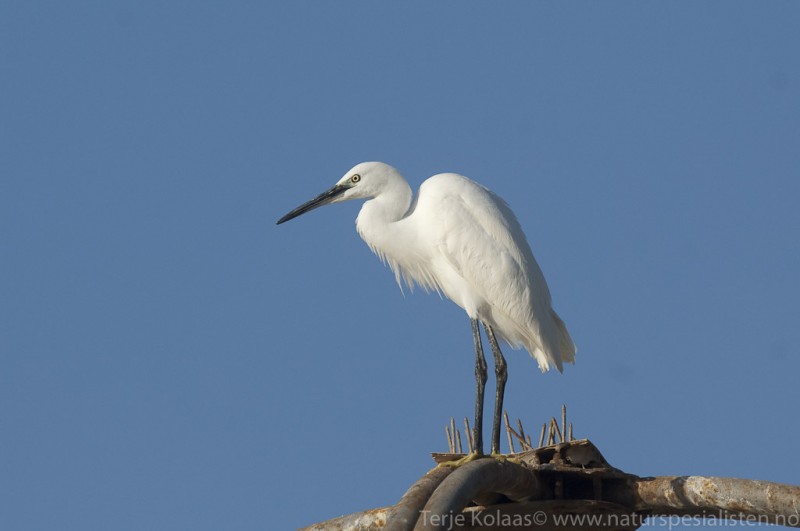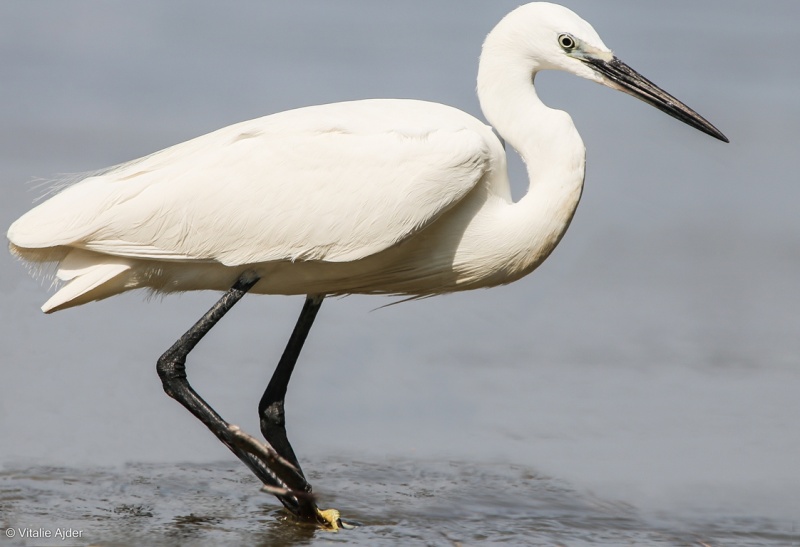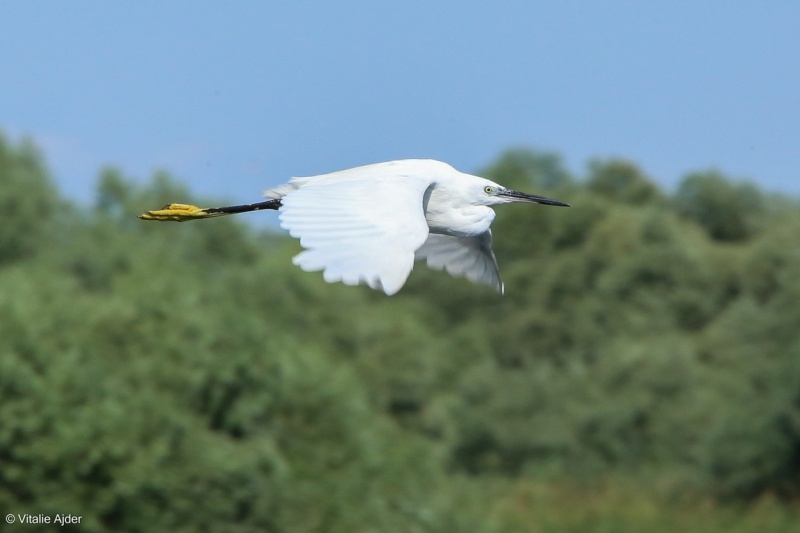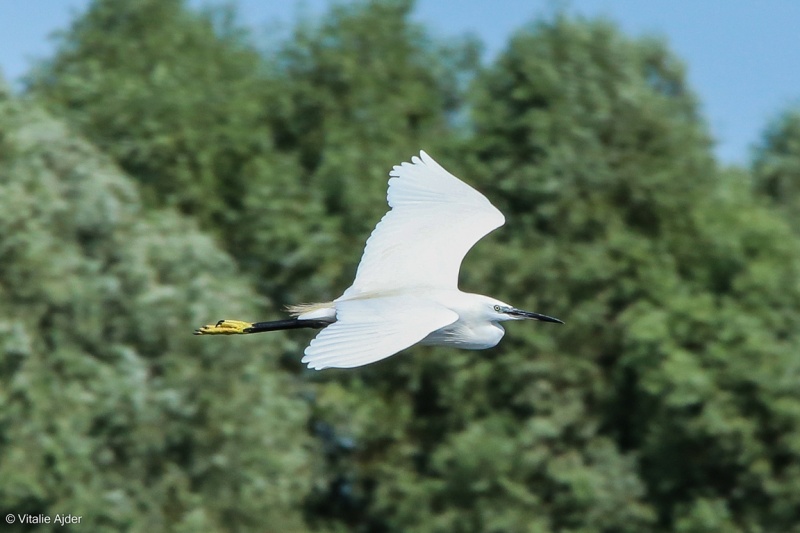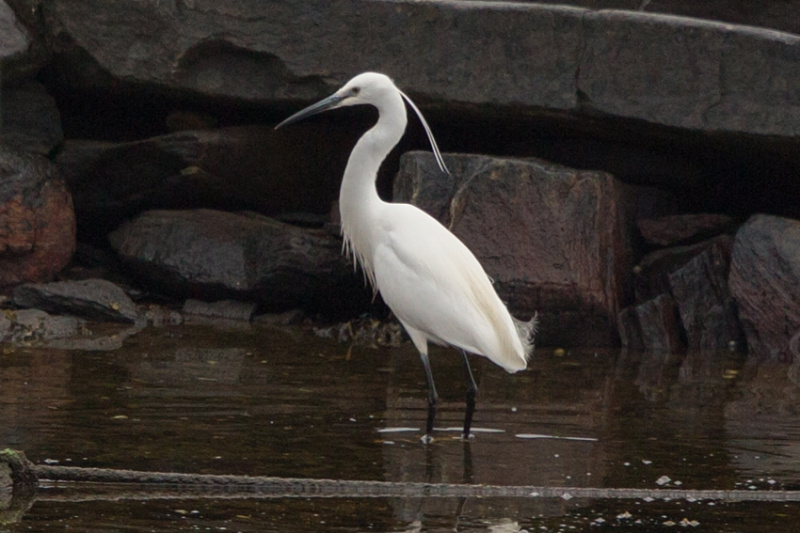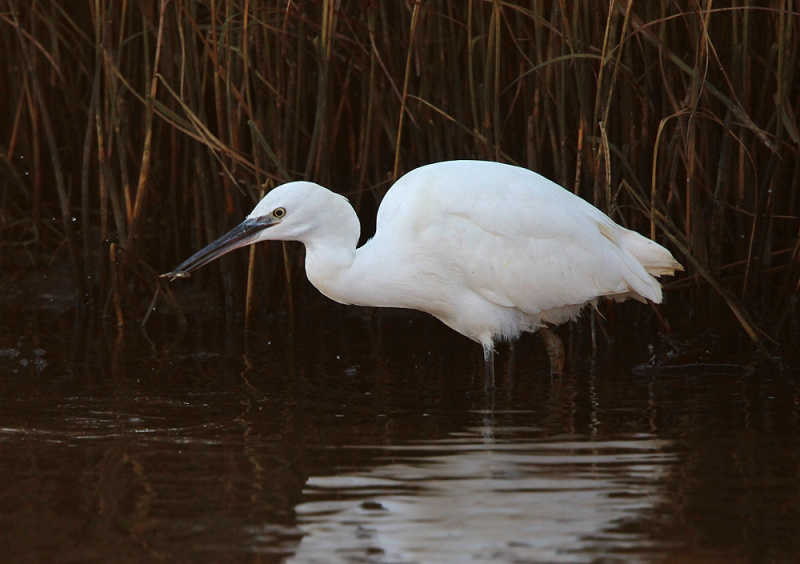Roseate Tern (Sterna dougallii)
Little Egret (Egretta garzetta)
Differs from Common and Arctic Tern by; noticably shorter wings, longer streamers, much paler grey upperparts, pure white underparts (faint rosy wash not very conspicuous), black bill (red base in breeding birds), dark outer primaries and no dark edge to inner primaries. Amount of red in bill increases as breeding season progresses, but also varies geographically. Wingbeats shallower and much quicker than in Common and Arctic Tern. Fishes with characteristic diagonal dives. Despite the long streamers, the birds appear short-tailed in flight, but head and bill are long and slender. The pale plumage, dark bill and giss recalls a small Sandwich Tern. Adult winter plumage with all dark bill and white forehead. Juveniles resembles juvenile Sandwich Terns, with more complete dark cap than Arctic and Common, and much more contrasting markings on back (especially to wings).
Sound:Extremely harsh calls. Like mix of Caspian and Arctic Tern. Very hard and raspy "kreeeet", harder and higher pitched than Caspian Tern, but equally harsh. Other calls include more Arctic/Common tern-like short "kek", and similar.
Contact call:
Distribution:
Wikipedia: map (se also Xeno-canto below)
Ecology:Birdlife ecology
Links:
Observation.org Latest observations
Image search Flickr NB! May give other species
CCCC-photo:USFWS/Southeast, Licence,Link.
CC-photo:Werner Witte, Licence,Link.
Differs from other white herons in the region by dark legs with contrasting yellow feet and toes. Bill always dark, and lores grey or reddish (breeding birds). Slender and elegant build, as opposed to Cattle Egret. Only roughly half the size of Great White Egret. In flight, note much quicker wing-beats of Little Egret and that the wings of Great White seems to be positioned more at the front of the body. Skulking, foraging behaviour with less erect posture than Great White, also when moving about. Legs less protruding beyond tail in flight than in GWE.
Sound:Sometimes utters a dry, rasping "kerrr" when flushed, but is mostly silent away from breeding ground. In colonies a peculiar gurgling and vibrating sound is heard; "ghala-la-la-la".
Call:
Distribution:
Wikipedia: map (se also Xeno-canto below)
Ecology:Birdlife ecology
Links:
Observation.org Latest observations
Image search Flickr NB! May give other species
CC
 English
English Albanian
Albanian
 Armenian
Armenian
 Bulgarian
Bulgarian
 Catalan
Catalan
 Croatian
Croatian
 Czech
Czech
 Danish
Danish
 Dutch
Dutch
 Finnish
Finnish
 French
French
 Georgian
Georgian
 German
German
 Greek
Greek
 Hungarian
Hungarian
 Italian
Italian
 Latvian
Latvian
 Lithuanian
Lithuanian
 Macedonian
Macedonian
 Norwegian
Norwegian
 Polish
Polish
 Portuguese
Portuguese
 Romanian
Romanian
 Russian
Russian
 Sami : Lule sami
Sami : Lule sami
 Sami : North sami
Sami : North sami
 Sami : South sami
Sami : South sami
 Scientific names
Scientific names
 Serbian
Serbian
 Spanish
Spanish
 Swedish
Swedish
 Ukrainian
Ukrainian


